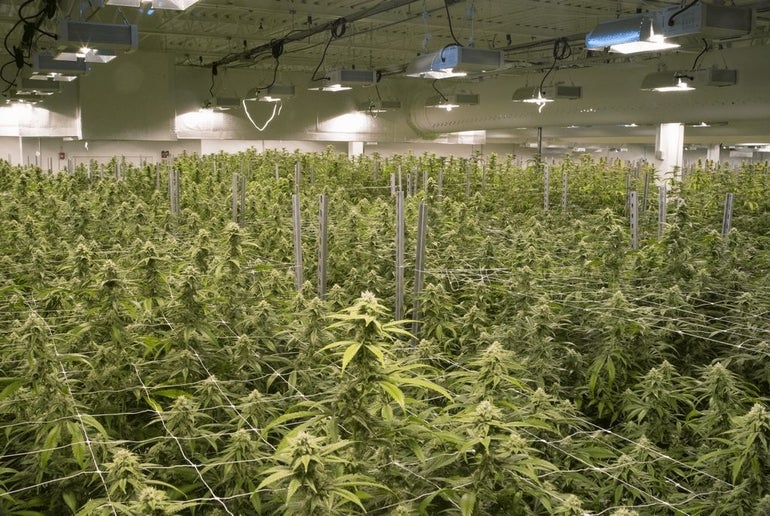Almost 8,000 low-income students in Massachusetts are on a waiting list for after-school and summer learning, according to a new report that recommends tapping the anticipated revenue from marijuana sales to fund such programs.
The Legislature’s Afterschool and Out-of-School Time Coordinating Council, in a report slated for release Tuesday, said children who attend high quality after-school programs get better grades, have fewer behavioral issues and have higher graduation rates, but for every child in such a program, two are waiting to get in.
The council, established in 2013 and chaired by Rep. Jennifer Benson and Sen. Brendan Crighton, recommended greater investment to address waitlists, programming gaps and workforce needs; the creation of tax incentives to encourage businesses to invest in the programming; and stronger state oversight, including a new post in the Executive Office of Education to coordinate informal learning.
“It’s definitely a big issue around equity, where we have thousands of young kids that want access to after-school and out-of-school programs but are simply unable to attend, and with all the evidence outlined in our report, we certainly see this as a worthy investment that will have huge impacts on not only the students’ lives, but also the families,” Crighton, a Lynn Democrat, said.
There are 196,562 Massachusetts students enrolled in after-school programs, 213,966 who are unsupervised during school hours, and 362,312 — or 44 percent of all students — would sign up for a program if they had the option, the report said. Citing the Department of Early Education and Care, the council said 7,900 low-income kids over age 5 are eligible for expanded learning services and currently waiting for care.
Crighton said after-school programs are an “economic empowerment” issue as well as an education one, because parents who don’t have family and friends who can watch their kids at the end of the day may end up limiting their work hours and career opportunities. He said he worked at an after-school program in Lynn while in high school and college, and waitlists were “huge” then.
“The way the system is currently laid out, they simply can’t serve the kids,” Crighton said. “There’s a real need, particularly in cities like Lynn, but also in more rural areas where transportation is a real issue.”
The council recommends that state and local taxes on non-medical marijuana sales “should form the basis of a new funding stream,” and makes the case that after-school programs can “act as prevention programs,” with students who participate having lower rates of drug misuse than their peers.
Alaska and California are linking revenue from legalized marijuana sales to after-school and out-of-school programming, according to the report, which recommended Massachusetts follow suit and “specifically funnel the revenue to programs that focus on promoting social and emotional competencies and learning.”
Benson said she came up with the idea of turning to marijuana revenue, and that she was “pretty adamant” about including it in the report.
“One of the goals of this council was to ensure that every child in the commonwealth of Massachusetts would have access to a high quality after-school program,” she said. “The only way we’re going to be able to do that is if we put more money behind that.”
The council also recommends that the state match federal dollars, implement flexible criteria to allow money under the federal Every Student Succeeds Act to be used for expanded learning time programs, create new funding streams for rural and underserved areas, raise reimbursement rates for state-funded after-school programs to allow for staff salary hikes, and invest in loan forgiveness and scholarship programs for staff.
The panel calls on the state to increase its Afterschool and Out-of-School Quality Grant funding from $4.29 million in this year’s budget to $5.5 million.
“Raising the funding to $5.5 million would ensure that these programs that benefit children are adequately supported,” the report said. “The state has too long depended almost exclusively on federal funding to support these proven programs that improve student outcomes.”
This year’s funding for the quality grant line item represents a 22 percent increase over last year, Benson said. She said lawmakers have “prioritized this,” but “to make the big investments we needed to make, I felt we needed to find a revenue source.”
Regulators eyed July 1 as a target date to begin marijuana sales in Massachusetts, but retail sales have not yet begun. Advocates behind the ballot law said this month that the state had missed out on $16 million in marijuana taxes. This year’s state budget anticipated $63 million in marijuana tax revenue.
Benson said that while she believes cannabis taxes could provide “a great head start” on funding after-school and summer programs, she knows she’s not the only one who will be eyeing that money when it does come in.
“Any new form of revenue always has many people at the table looking to get a piece of it,” she said. “I am not naive enough to think that 100 percent of this revenue will go to after-school.”
The Afterschool and Out-of-School Time Council plans to release its findings at a 10 a.m. State House event. Representatives of the Massachusetts Afterschool Partnership, which supported the council’s work, and the United Way of Massachusetts Bay and the Merrimack Valley are slated to participate, along with Benson and Crighton.

